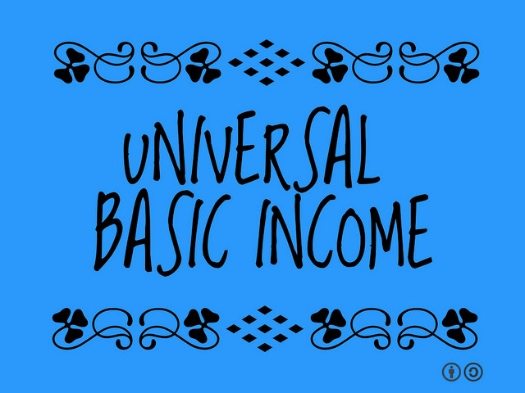
June 19, 2017; Honolulu Civil Beat
Last session, Hawaii passed a bill to explore a universal basic income for the state. The bill passed unanimously in both the houses of the state legislature. The move has received a lot of attention. State Rep. Chris Lee, who sponsored the bill, said, “I’m definitely glad to see a lot of people out there looking at this and asking the same questions.”
The bill has two provisions: It asserts that all families in Hawaii are entitled to basic financial security and it establishes government offices to analyze the Hawaiian economy and other universal basic income programs and propose a pathway for Hawaii.
The context articulated in the resolution is one where the automation of jobs has moved from the manufacturing sector to the services sector: “Self-driving Ubers are starting to replace taxis in some places; IBM’s Watson computer can provide basic legal advice faster and more accurately than a human lawyer; and self-checkout lines are replacing human cashiers at stores.”
Rep. Lee said Hawaii has to consider this context because cost of living is very high there and residents often turn to side jobs in the service industry to make ends meet.
In fact, a joint study by Oxford University and the Oxford Martin School in 2013 found that over the next 20 years, “47 percent of jobs in the U.S. are ‘at risk’ of being automated.” Dr. Martin Osborne, one of the co-authors of the study’s report, said, “We identified several key bottlenecks currently preventing occupations being automated. As big data helps to overcome these obstacles, a great number of jobs will be put at risk.” Their research highlighted jobs in “transportation, logistics, as well as office and administrative support.”
Sign up for our free newsletters
Subscribe to NPQ's newsletters to have our top stories delivered directly to your inbox.
By signing up, you agree to our privacy policy and terms of use, and to receive messages from NPQ and our partners.
Finland began a two-year trial run in 2016 with 2,000 citizens who will each receive the equivalent of $587 a month, tax-free. The pilot is only for people already receiving an income subsidy or unemployment benefits. Incidental earnings, such as from odd jobs or self-employment, will not affect the UBI payment.
The Netherlands also launched a two-year test this year with 250 Dutch citizens in Utrecht and nearby cities. The participants are placed in six different test groups receiving slightly different stipend amounts under slightly different conditions. One group will receive about $1,100 a month without obligation. Another test group has the option to receive an additional $150 at the end of the month for any volunteer service, and another will receive the $150 at the beginning of the month but would have to return it if they didn’t volunteer. The fourth test group is made up of welfare recipients who will simply continue receiving their benefit, but without any work requirements. A fifth has welfare recipients who expressed interest in the $1,100 but will instead continue to receive their standard benefit. Finally, the sixth group is a control group of welfare recipients who simply want to continue receiving their standard benefit.
Loek Groot, an associate professor at the Utrecht University School of Economics, who is working on the program, notes, “The Netherlands’ current welfare system wastes too much money and doesn’t do enough to help its beneficiaries.” Further, “Human behavior is always unpredictable. We want to know what motivates people, what people respond to.”
According to the online news outlet Futurism, which calls 2017 “The Year of UBI,” Germany also has a two-year UBI pilot, Canada and Uganda each plan to start one, and India is debating the merits. eBay founder Pierre Omidyar is currently financing a UBI experiment in Kenya.
According to the Basic Income Earth Network, the idea of a minimum income first appeared in the 16th century; by the 19th century, the idea had evolved into unconditional basic income. In 1969, President Nixon proposed the Family Assistance Plan in the U.S. to replace the AFDC, the aid program to poor families, but it was eventually rejected.
Opponents of UBI worry that it will make people lazy. But Sam Altman, the president of the incubator Y Combinator, which is funding research on inverse basic incomes, said, “Maybe 90 percent of people will go smoke pot and play video games. But if 10 percent of the people go create new products and services and new wealth, that’s a huge net win.”—Cyndi Suarez












